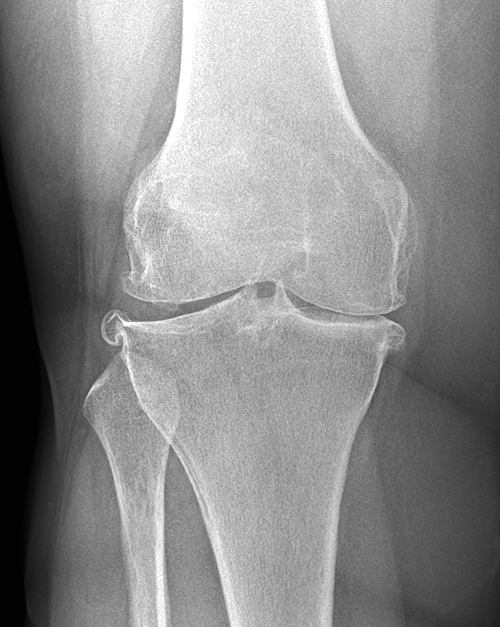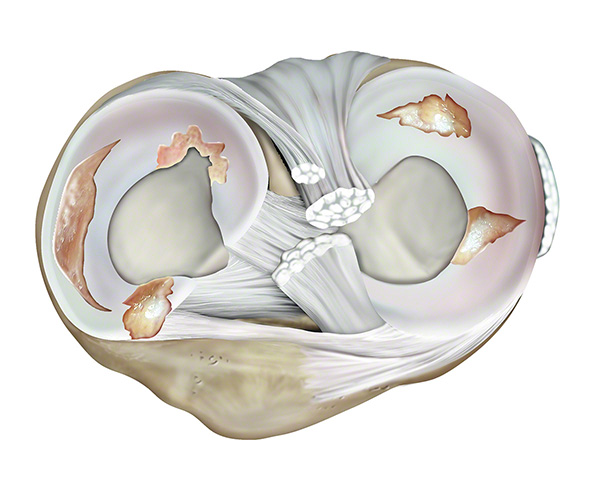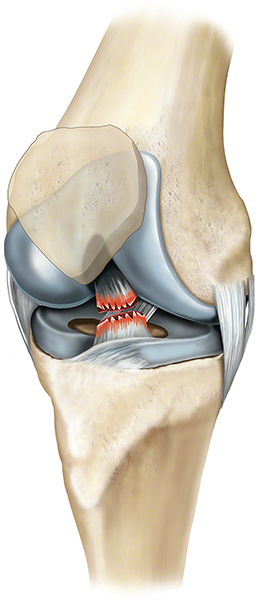At the Hull Hip and Knee Clinic we are happy to see patients with any hip or knee problem. The most common disorders we encounter are:
At the Hull Hip and Knee Clinic we are happy to see patients with any hip or knee problem. The most common disorders we encounter are:

Arthritis

Arthritis

Cartilage (meniscal/labral) Tears
The knee has 4 ligaments, 2 collateral ligament on either side of the knee that stop side to side movement and 2 cruciate ligaments that prevent too much forwards and backwards movement of the knee.
The ligaments can be torn or sprained and in most cases are treated without surgery and a knee brace. A torn anterior cruciate ligament (ACL) can cause painful giving way (instability) symptoms Reconstruction of the ligament is often performed to stabilise the knee and let the patient return to activities and sports.

Cartilage (meniscal/labral) Tears
The knee has 4 ligaments, 2 collateral ligament on either side of the knee that stop side to side movement and 2 cruciate ligaments that prevent too much forwards and backwards movement of the knee.
The ligaments can be torn or sprained and in most cases are treated without surgery and a knee brace. A torn anterior cruciate ligament (ACL) can cause painful giving way (instability) symptoms Reconstruction of the ligament is often performed to stabilise the knee and let the patient return to activities and sports.

Ligament Injuries
The knee has 4 ligaments, 2 collateral ligament on either side of the knee that stop side to side movement and 2 cruciate ligaments that prevent too much forwards and backwards movement of the knee.
The ligaments can be torn or sprained and in most cases are treated without surgery and a knee brace. A torn anterior cruciate ligament (ACL) can cause painful giving way (instability) symptoms Reconstruction of the ligament is often performed to stabilise the knee and let the patient return to activities and sports.

Ligament Injuries
The knee has 4 ligaments, 2 collateral ligament on either side of the knee that stop side to side movement and 2 cruciate ligaments that prevent too much forwards and backwards movement of the knee.
The ligaments can be torn or sprained and in most cases are treated without surgery and a knee brace. A torn anterior cruciate ligament (ACL) can cause painful giving way (instability) symptoms Reconstruction of the ligament is often performed to stabilise the knee and let the patient return to activities and sports.
Hull Hip & Knee Clinic
Spire Hull & East Riding Hospital
Lowfield Road
Anlaby
Hull
Humberside
HU10 7AZ
Contact Information
To enquire about surgery or ask for more information please ring my private secretary or contract me via the email below:
Phone : 01482 660272
Email : [email protected]
Hull Hip & Knee Clinic
Spire Hull & East Riding Hospital
Lowfield Road
Anlaby
Hull
Humberside
HU10 7AZ
Contact Information
To enquire about surgery or ask for more information please ring my private secretary or contract me via the email below:
Phone : 01482 660272
Email : [email protected]



